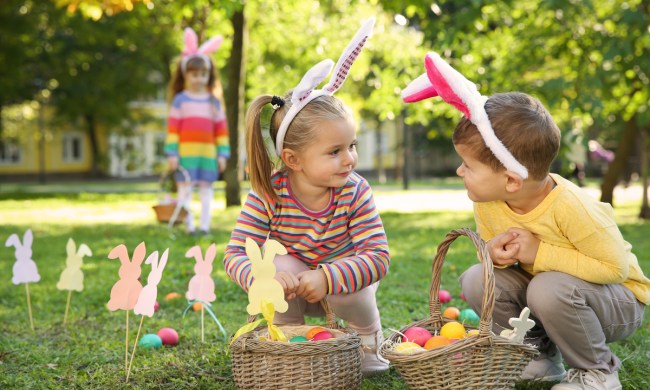This is a pretty common issue that many dentists have tackled over the years. Sometimes, kids are afraid of the dentist simply out of irrational fear. But there are other reasons that they can be afraid of going for a dental checkup, too. Pop culture, especially some cartoons, have portrayed dentists to be treacherous monsters, which could not be further from the truth. The bottom line is that proper dental care is essential for their health. If you have a child afraid of going to the dentist, we’re sharing six ways to help ease their fears.
Watch educational videos (or read books)
With the vast, wide world of YouTube, there are plenty of educational videos that can help your child feel better about going to the dentist. Alternatively, there are a variety of books on the market that can help your child learn all about the dentist. The books will tell them what dentists do and how they will make your child’s teeth big and strong. Below are some videos and books that might help you.
Books
- We’re Going To The Dentist: Going for A Checkup by Marion Cocklico
- Daniel Tiger’s Neighborhood by Alexandra Cassel Schwartz
- A Trip to the Dentist (DK Readers Level 1)
Videos
- Finny Goes To The Dentist
- The Feelingwells Visiting The Dentist
- Super Simple Play: A Visit To The Dentist!

Role-play a pretend visit
A few days before their dental appointment, have a “pretend” dentist visit with your child. Gather up some things like a mirror and other items to pretend that they are dental tools. Start chatting with your little one about going to the dentist and how beneficial it is for them to keep their teeth clean. Talk to them about how visiting the dentist can help them do that. While talking to them, encourage them to look in the mirror and smile, count their teeth, and you could even get a toothbrush and pretend to clean their teeth as a hygenist would. Don’t forget to ask them if they have any questions about going to the dentist, and see if you can help to ease those fears that they have.
Implement positive reinforcement
Positive reinforcement does not mean bribing your child with something like candy, dessert, or a new toy. However, what it does do is build up their morale when you talk about just how well your child did at the dentist. They will be happy that you are proud of them, and it will truly be invaluable to them. Make sure that you build them up on the way to the dentist, and finally, when they get to the dentist’s office, be their coach and cheer them on. When they are done, give them a huge hug and let them know how proud you are of them for being so cooperative at their visit.
Find a pediatric dentist
If you have one in your area, finding a pediatric dentist could be key to helping to ease your child’s fear of the dentist. Many pediatric dentists and their staff are equipped on how to speak to children who are afraid. Not only that, the offices are typically are decorated with fun decor to help ease kid’s fears. Plus, many dentist offices have different kinds of distractions for the kids. These include some really cool tablets, movies for the kids to watch, and some even have game systems. What kid can resist that?

See if you can stop by
If children are a bit more familiar with their surroundings, it won’t be sprung on them the day of their appointment. One way to do this is to call up their dentist and ask them if your child can come in for a walk-through and a tour of the facility, and maybe even meet the staff. This could do a lot to help your little one feel better about going along to the dentist if they have met the people that will be working on their teeth. If your dentist allows this, it is definitely a great thing to do with your child.
Deep breaths
You might need deep breaths all around depending on how your child deals with their dentist appointment. The most important thing is to calm them down and get them to a state where you can talk to them about what is going on and how they are feeling. You also have to make sure that you take some deep breaths as well, as it is hard to see your little one scared, but they are in good hands with their dentist.
Going to the dentist can be a pleasant experience for both kids and parents. If you try some of these tactics to help keep them at ease during their dental cleaning, the chances of it being a smooth visit are much higher. By using some of these methods to cope with fear, your child will be one step closer to a comfortable dental appointment.


